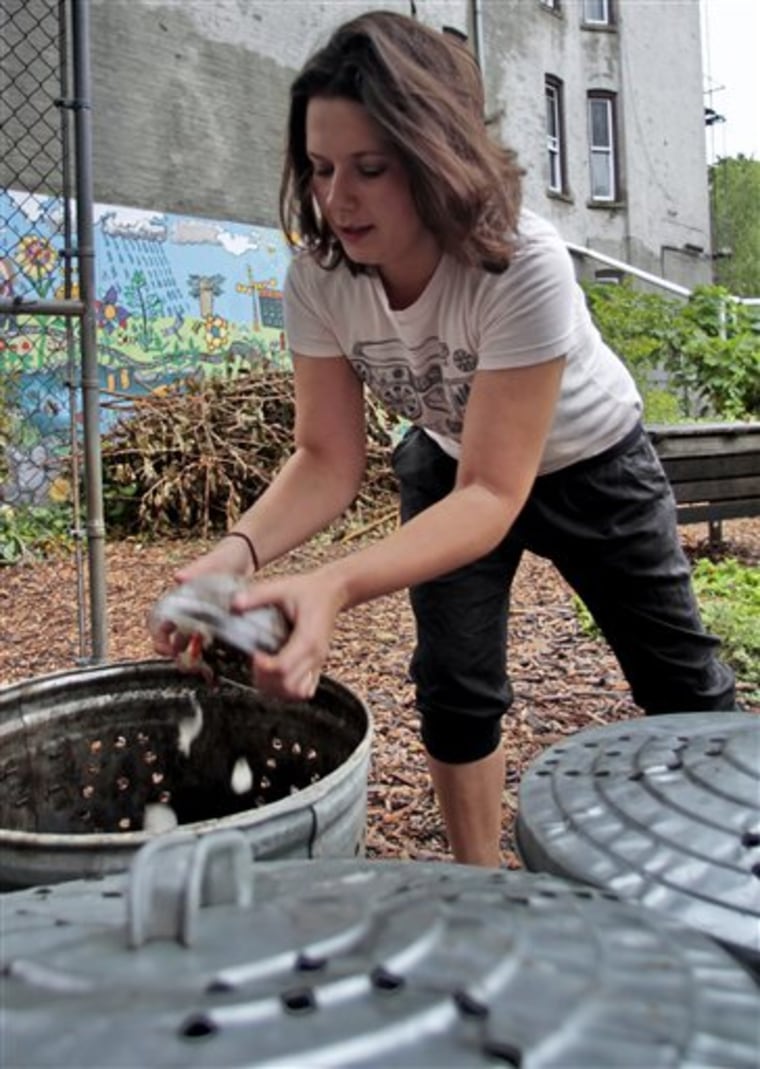Americans waste an estimated 14 percent to 40 percent of the food produced for their consumption. It happens in fields, in stores and in your kitchen. That's bad for the environment and it can be very bad for your wallet.
"Food waste is one of those things that hide in plain sight," says Jonathan Bloom, author of "American Wasteland," about food waste. "When it's really put in front of people, it does surprise them."
Farmers toss imperfect heads of lettuce, grocers chuck bruised tomatoes and, by best estimates, consumers waste about 25 percent of the food they buy — throwing out browned bananas, outdated cheese and unused leftovers.
This has all sorts of environmental, social and ethical ramifications. But if you look just at the financial impact on the consumer, that is the equivalent of a family of four tossing $1,500 to $4,000 in the garbage each year. That's a lot of dough.
Here are a few tips on how to make better use of your food — and money:
PLAN AHEAD: If you buy just what you need, you'll find yourself wasting less right away.
Try planning out meals for a week at a time. Or shop for a few key meals at a time so you can fix them depending on your preference of the day. While it works for some people to buy everything in one big shopping trip, others find they waste less if they make smaller and more frequent trips.

No matter your approach, figure out what you toss most often and think about other options you have. Broccoli going bad in the fridge each week? Try frozen veggies. Need more than a can's worth, but less than a jar's worth of beans? Buy in bulk so you can use what you need each time and save the rest more easily.
"Don't bring so much into your home that you have to waste food," Bloom says. "The strategy is up to (you)."
TIDY UP: If you can't see it, you probably won't use it.
In many households, big, overcrowded refrigerators are major culprits in food waste, Bloom says. Think of the zucchini at the bottom of the vegetable drawer that could have made it into last night's stir fry, if only you had seen it.
Storing things well and labeling them can make them less mysterious when you come across them in the freezer — and more appealing to defrost and use. And you can extend the shelf-life of a lot of foods with proper storage, including produce containers with vents or strainers. Even simply putting a paper towel in with their lettuce can keep it crisp longer.
CHILL OUT: If you keep food cool, it will keep longer.
You keep milk in the fridge, and you know vegetables stay fresh longer in the crisper. But the freezer? It's not just for ice cream. Try putting bread, meat or even half-eaten leftovers in there to significantly extend their shelf-life.
It's also worth looking at the temperature of your refrigerator, which ideally should be 40 degrees, says Carolyn Raab, a registered dietician and food and nutrition specialist with Oregon State University's extension program. If you keep it at 45, your milk and other perishables won't stay good as long.
And if your ice cream goes soft, your freezer's a bit too warm.
EAT IT: Sometimes it's a matter of just eating what you have.
If you made enough food for multiple meals, eat your leftovers or freeze them until later. Try new combinations or recipes to use up what you have on hand before buying more. And don't let the use-by, sell-by and eat-by dates set your schedule, experts say. Those are largely designed for quality, not safety of the food.
Don't eat something if it's gone bad, of course. But if it smells, looks and tastes okay — it probably is, experts say.
"I'm not perfect; even I throw away food, and I think about it a lot," Bloom says. "We can never do away completely with food waste but we could do away with a lot of it."